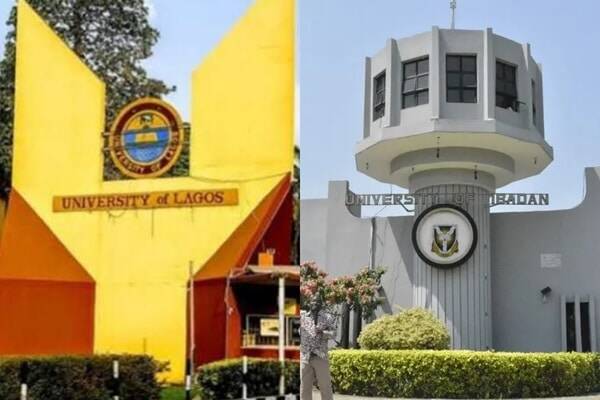In Nigeria, many students who apply for postgraduate studies often complain about long delays in admission processes, slow responses from supervisors, and extended timelines for thesis defense and convocation.
However, a few universities have built a reputation for offering faster and more efficient postgraduate programmes without compromising academic quality.
Among them are the University of Ibadan, University of Lagos, Nigerian Defence Academy, Bayero University Kano, and now the Federal University of Technology Minna (FUTMINNA). These schools stand out for their speed in programme delivery, clear timelines, and well-structured academic calendars.
1. University of Ibadan Postgraduate College
The University of Ibadan (UI) is widely regarded as Nigeria’s premier university, and its Postgraduate College has consistently ranked among the most efficient in terms of programme completion. According to many students and alumni, UI’s master’s degree programmes are usually completed within 12 to 18 months.
One of the major reasons for this speed is the clear structure provided by the Postgraduate College. Students often receive timely feedback from supervisors, and the thesis process follows a specific timeline. Additionally, most departments conduct internal defenses on time and do not delay external assessments unnecessarily.
A UI postgraduate student who recently completed an MSc in Sociology in just 15 months narrated, “From proposal to defense, everything moved quickly once I followed the guidelines. I didn’t experience unnecessary bureaucracy.”
2. School of Postgraduate Studies, University of Lagos
The University of Lagos (UNILAG) has also earned praise for how it runs its postgraduate programmes. With a strong administrative structure and a centralised School of Postgraduate Studies, UNILAG has managed to reduce unnecessary delays.
Many students report completing their master’s degrees within 15 to 18 months. What makes the system faster is the emphasis on timely coursework, immediate supervisor allocation, and strict deadlines for submission of projects and theses. The university also schedules convocation ceremonies promptly, which gives graduates confidence that they will receive their certificates within a reasonable time after completion.
An alumna who finished his Master’s told me, “Unilag is fast but very rigorous. You can do everything within one year, depending on the course and also if you are a serious student. If not, then you might spill one semester or two.”
ALSO READ
3. Nigerian Defence Academy, School of Postgraduate Studies
Although it is primarily known for military training, the Nigerian Defence Academy (NDA) runs one of the most efficient postgraduate schools in the country. Located in Kaduna, the NDA’s School of Postgraduate Studies serves both military and civilian students.
The institution is known for its disciplined approach to academic scheduling. Most of its master’s programmes are structured to be completed within 12 months. Students who follow the academic calendar strictly usually graduate without delays.
An NDA graduate with a Master’s in Security Studies stated, “It was intense, but the structure helped. You know from day one when your lectures, exams, and project submissions are due. There’s no room for delay.”
4. Bayero University, Kano (BUK)
Bayero University, located in Kano, has made a name for itself in the northern part of Nigeria not just for academic excellence but for its fast postgraduate programmes. BUK’s School of Postgraduate Studies has put in place efficient systems that help students move from admission to graduation within a short period.
Students in BUK’s master’s programmes often complete their studies within 12 to 18 months. The university uses digital tools for result processing and project submissions, which reduces bottlenecks. Supervisors are also trained to avoid unnecessary delays.
5. Federal University of Technology, Minna (FUTMINNA)
FUTMINNA’s School of Postgraduate Studies offers one of the fastest master’s and doctoral programmes in Nigeria. According to official data, its MSc programmes take three semesters minimum (~18 months) and a maximum of six semesters (~36 months) for full‑time students. PhD candidates complete in a minimum of six semesters (~3 years) and a maximum of ten semesters.
Graduates praise its pace and structure. Though some research centres like ACEMFS noted longer durations, most general postgraduate journeys are efficient. FUTMINNA’s clear semester frameworks and CGPA policies help minimize delays.
If you’re a graduate seeking further studies without the usual long delays, these schools should be at the top of your list.
